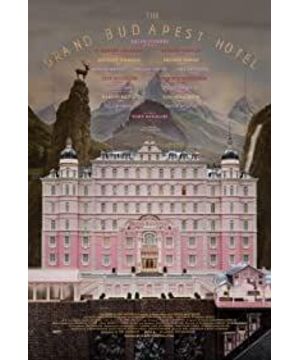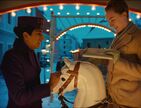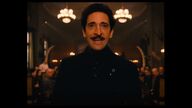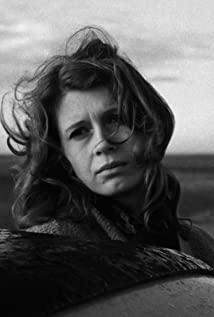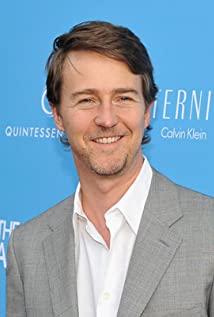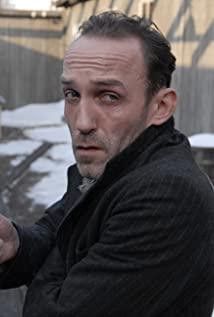Wes Anderson's works are not too familiar, but they are not unfamiliar. Watched his previous films "Fantastic Daddy Fox," "The Trennbaums," "Through Darjeeling," and "Moonrise Kingdom." Known as a "writer-director", he has a strong style in his work, summed up in a centerless, themeless freewheeling narrative, dry humor, chattering lines, and a lot of slow-moving panning wide-angle shots. Talented but not sharp, his films give people an indescribable feeling, as if telling a fairy tale, because the characters, plot, and background settings in it seem to be out of reality and very unreal. But the feelings inside, such as family, love, and the truth, goodness and beauty in human nature, the most cherished elements of life, are the core of the story, which reminds us of the existence of reality. If it is said that movies originate from life and are higher than life, then his movies originate from movies, but give back to life more directly.
I just admire his style, but I don't like it from the bottom of my heart. His narrative style is not very rhythmic, and even a little procrastinated. The theme of the movie needs to be chewed carefully after watching it, thinking about life, and experiencing it from the kind of gentleness. As for the cold humor in the long lines, it's too literary and refreshing for a cult fan like me who likes Quentin's dark humor. Emotional incitement, even the most sad thing, is understated by Master Wei's optimistic narration, and naturally it is not the tearjerker of Japanese and Korean films. But this is his style, and because of this, he has gathered a large number of fans.
This movie, naturally, has a distinct Wes Anderson label. The whole movie revolves around a murder case, but the soundtrack is cheerful and melodious, and there's really nothing dark about it. This time, Wes Anderson's control of the rhythm is superb. With such a soundtrack, he has to catch up with so many nonsense "grinders", and he can tell the story slowly and slowly. , It makes people look at it with relish and have to admire it. In fact, the story is not strong, but with Webster's style, it has another flavor. If this film were made by other directors, I am afraid it would fall into the mold of a documentary murder case, but the story itself is relatively simple, and the setting of suspense is definitely not good enough, so no one is more suitable than him.
In the movie, the most outstanding must be Gustav, the protagonist played by Ralph Fiennes. He has successfully created the image of a Tang monk in Journey to the West, and he played the role of "Schindler's List" before. The Nazi leader and Voldemort's viciousness is nothing like it. It feels pedantic, gritty, but funny. For example, when he first appeared on the stage, he told a rookie doorman, Zero, to do a lot of work, and then asked his surname. He loves to give speeches, and he speaks in such large piles that employees have to listen to them while they eat. He also especially likes to recite poems to suit the situation, even at the most critical moment, he has to say a few words. The most hilarious is the part of the prison break. It feels like not only him, but the people in the whole story are so unreliable and unreliable. For example, the prison boss, with a sturdy appearance, has a very cartoon tattoo on his naked upper body. For example, when a security inspector sees a delicate cake, he can't bear to destroy it and come to inspect it. For example, after "Tang Seng" escaped from prison, he did not escape immediately, but stayed where he was. These bridges are typical Webster's style, unreliable, unreliable, and unreasonable, which is what I said before is unreal but very happy, like a fairy tale.
But this movie is not simple. After watching it, I read a review by a great god, this is a movie that pays tribute to Zweig. I'm ashamed that I'm not very knowledgeable, I haven't read Zweig, I only remember learning his texts in junior high school. I don't know this writer, so I didn't see any involvement with Gustavo in the play. I only know the background of the story. I know this is a tragedy, a tragedy that makes people laugh and watch. But some people commented that the story only revolved around one murder case, and unfortunately the setting of the big background, it would be a big mistake. The point of this film is not to tell a story, but to celebrate a person.
First of all, Gustavo's Tang Seng Faner is indeed the most impressive place, but it also makes people ignore many of his advantages. For example, he is rigorous in his work and must be perfect. (Later, when Gustavo asked major restaurant owners for help, the performance of the bosses told us that this is a necessary quality for a boss.) He treats people with kindness and sincerity. Although he has a lustful side, he is not fake. That's why the old lady played by Tilda Covington likes him. He likes to recite poetry and his preference for fragrance, which shows his high literary quality and life style. People who love life will naturally have high requirements for the quality of life. (As for reciting poetry everywhere, in addition to his pedantic personality, it is also the director's filming technique, which acts as a narrator) He has a rich family, but he never bullies the weak and treats others equally. After learning about Zero's tragic life, he regretted and even exaggeratedly apologized. Because he never forgot his origin, many people joined the oppressing party after becoming famous, and he could always abide by his own principles. In that chaotic era, he spoke for the disadvantaged and never flinched in the face of rape. This is the most commendable, even in that era, he was going to be eliminated. As old Zero said, "his era was gone long before he stepped in". And that's what he and Zweig have in common. Therefore, this is a tragedy, a tragedy of a good person with advanced thinking and good character, who was abandoned by his own era. It's just that Wes Anderson was so good that we watched this tragedy with a smile.
Thinking back to the scene before Gustavo's death, that part used black and white tones. I personally feel that the bright tones are one of Wes Anderson's characteristics, and it is also a rendering of a light atmosphere, but this part is undoubtedly heavy. . Gustavo defended his friends as usual, even if he didn't even know them, he couldn't bear to watch them persecute. So, we saw his rare threats and roars, accusations and denunciations of the Nazi army, and this is the only scene in the film that is implicated in hatred. (Even the big villains played by Adrian Brolin and Willem Dafoe are also very cute in the battle with Gustavo, making people feel no disgust, and Gustavo has always given people "It's a big heart" feeling, we know Gustavo will die, and his death will not be set in the fight with the villain) When we miss someone, of course we want to think of something beautiful and hopeful , at least it should be as peaceful as Old Zero, as for hatred, it is a memorial to forget. So, that's the real reason Anderson's style suits this movie.
Today people highly respect Wes Anderson, thinking that he will be the next Billy Wilder, or the next Martin Scorsese. (It can be seen from the all-star lineup of this film. It's not bad that a 100-minute movie can make every star go through a scene, and it's good to have an eye addiction.) From the point of view of artistic style, he is different from the first two. Not like, in terms of artistic achievements, he is expected to reach that height, at least for now he is unique Wes Anderson.
View more about The Grand Budapest Hotel reviews


